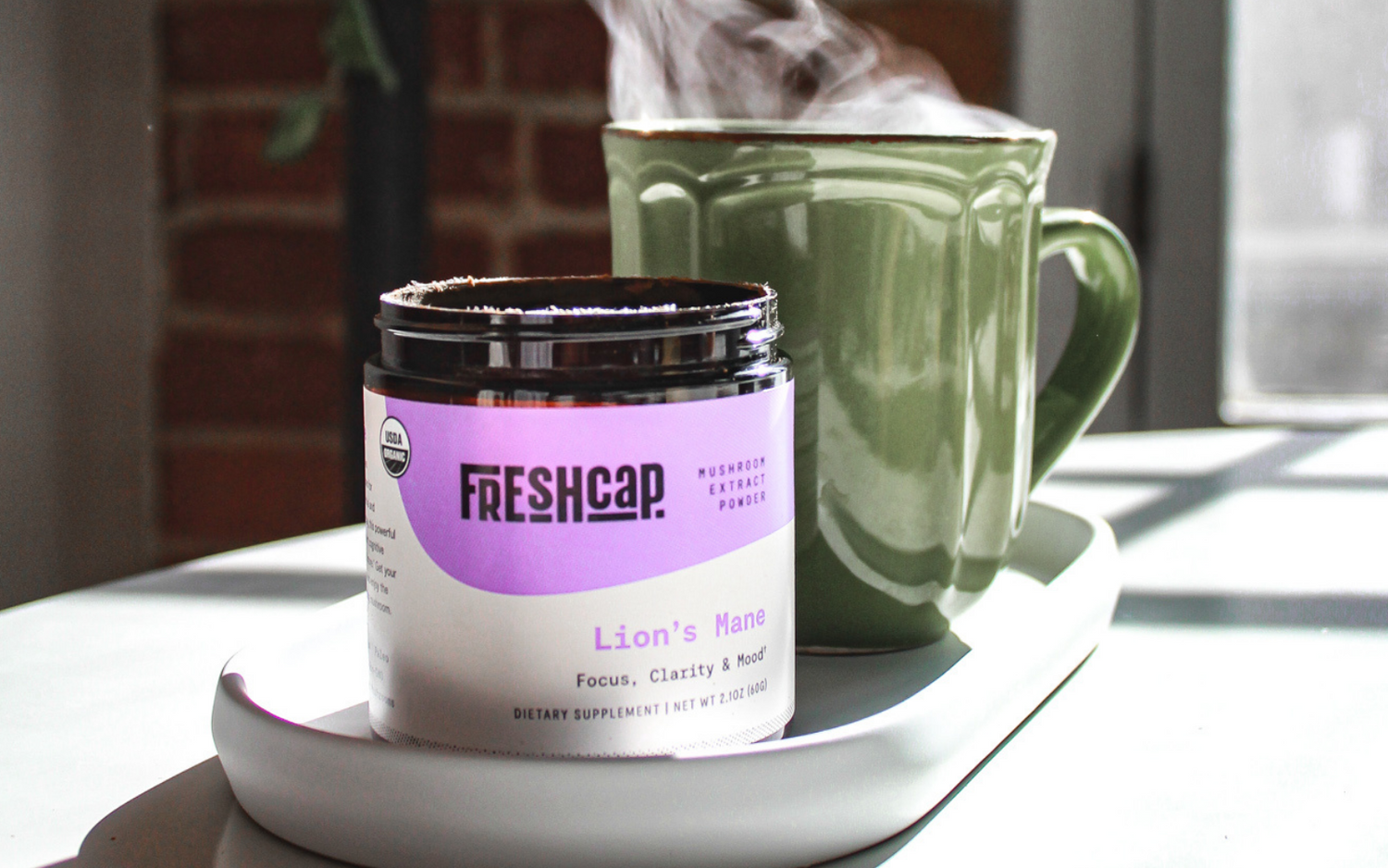Naturally, if you're new to medicinal mushrooms, you have plenty of questions. Should you take lion’s mane before bed? Does cordyceps interact with any other medications? Can you combine turkey tail with caffeine? Here, we'll explain how to take your lion's mane mushroom supplements for the best health benefits. 

How to Take Medicinal Mushrooms for Good Health Benefits
As with all medicinal mushrooms, you won't notice much in the way of effects immediately after you take lion's mane mushroom.
That's simply not how mushrooms work. (Well, except for the psychedelic kind.) Instead, it's more important to take your mushroom extracts and powders on a consistent basis. They need time to build up in your system and get to work. Medicinal mushrooms aren't like Xanax or CBD where you can immediately notice the benefits. In most cases, it will take about two weeks before you notice the healing powers of mushrooms. Many adaptogens and herbal supplements work this way. It's important not to get discouraged and stop taking them if you think they "aren't working." Give it at least a month. If you're still not convinced, stop taking them and see how you feel after a week. Like antidepressants, many people don't notice how much lion's mane extract and medicinal mushrooms were improving their health until after they stop taking them.
Does It Really Matter If You Take Lion's Mane Before Bed or Not?

Everyone reacts differently to mushrooms. In general, you won't notice how the mushroom impacts your brain for a few weeks. However, some people will notice lion's mane extract makes them feel tired. Lion's mane and reishi are two popular mushrooms for anti-anxiety health benefits and restful sleep. Many people like to brew up mushroom coffee. Not only does it taste great but making mushroom coffee can help you establish a routine so you're more likely to remember to take your mushroom extract every day. In this case, it's best to take your lion's mane mushroom powder in the morning or early afternoon so the caffeine won't keep you awake at night. In terms of other mushrooms, you may notice that some extracts like cordyceps keep you awake if you take it before bed. Cordyceps is a favorite fungus among athletes because it increases your ATP energy production and oxygen uptake. In this case, it makes sense to avoid taking it before bed. Other than that, you probably won't notice too many immediate side effects.
What are the Top Health Benefits of Lion's Mane Mushroom?
Lion's mane, (Scientific name Hericium erinaceous), is a beautiful mushroom popular in traditional Chinese medicine thanks to its powerful effects on the brain. Each mushroom has its own unique beta glucan content, antioxidants, and nutritional benefits. While cordyceps is a favorite for athletes and reishi is the go-to for anxiety and anti-aging, lion's mane is the most popular mushroom for preventing memory loss. The mental health benefits of lion's mane mushroom come from its ability to stimulate nerve growth factor (NGF). While traditional Chinese medicine has known this more or less for centuries, Western research is finally starting to catch up. Here's why lion's mane supplements should be in everyone's medicine cabinet.Anti-Inflammatory Effects
Did you know that most modern illnesses stem from chronic inflammation? Acne, stomach ulcers, diabetes, cancer, joint pain -- inflammation is always the likely culprit. Lion's mane mushroom extract provides a natural anti-inflammatory solution because it's packed with polysaccharides, beta glucans, and antioxidants that neutralize free radical damage and oxidative stress. Animal studies show that lion's mane offers a promising natural option for managing inflammation-related illnesses like stroke, irritable bowel disease, and even liver damage. (1, 2)Stimulating Nerve Growth Factor

The best health benefits of lion's mane stem from its neurotrophic properties. In other words, it can help the brain heal itself by stimulating nerve growth factor or NGF. In that respect, researchers have identified a few bioactive compounds in lion's mane that promote brain cell growth: hericenones and erinacines. Animal studies on mice have discovered that hericenones and erinacines also help break up plaque in the brain and prevent new plaque from forming. (3) Plaque in the brain is a driving factor behind age-related memory loss conditions like Alzheimer's. Not only does this mean that lion's mane can prevent memory loss, but it can also function as a nootropic in healthy individuals and defend against other neurodegenerative diseases.
Supporting the Immune System
All medicinal mushrooms, such as lion's mane extract, are loaded with antioxidants. They're the best edible source of antioxidants, in fact. Most of the immune system support comes from a bioactive substance called beta glucan. Studies on mice found that lion's mane mushroom supplements quadrupled their lifespan after receiving a lethal dose of salmonella. (4) A strong immune system isn't important only for defending against acute disease like the common cold. You also need a healthy and balanced immune system to avoid autoimmune flare-ups and prevent age-related disease from inflammation.May Help Manage Blood Sugar
For anyone managing life with diabetes or high blood sugar levels, lion's mane might be an effective natural tool. Studies show that lion's mane extract significantly lowers blood sugar levels by impacting how the body processes and absorbs carbohydrates. (7)


